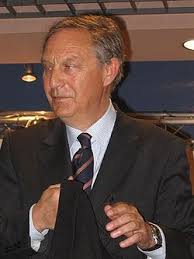From:
WSJ Polish computer hardware distributor Action decided to pull out of Ukraine and sell shares in its unit there.
Despite Action’s huge loss on the entire investment, analysts who cover this Warsaw-listed company offered a loud sigh of relief after the pullout as Ukrainian operations continued to generate losses from quarter to quarter without any promise of a better tomorrow.
The company said it views the situation in Ukraine negatively, as declining gross domestic product, high inflation and unemployment mean the country’s economy will be depressed for many quarters ahead.
Flashback to the early 1990s — some politicians, maybe listening to what Russia was saying or maybe just being useful idiots, were saying Poland was wrong in reorienting its own economy from Comecon to the West. Why go West if you have the vast markets of the East, they would say?
Fortunately, Poland didn’t listen and now nearly 80% of its foreign trade is with other European Union countries, with more than 50% of the total with the euro zone.
In the meantime, Russia has repeatedly tried to block Polish exports, and even the Orange Revolution in Ukraine, which Polish politicians eagerly supported, has failed to change anything for Polish companies there.
Keep in mind that many Polish executives who are still active now also have the experience of the communist regime and its crazy economic logic, and they somehow got by. But present-day Ukraine just beats them.
A number of Polish companies that are covered by the financial media here have investment projects in Ukraine. This group includes or used to include radio broadcaster RMF FM, one of Poland’s largest banks PKO Bank Polski, media firm Agora and now South African-owned online communicator Gadu-Gadu, as well as a number of real-estate developers.
And they all complain that business rules in Ukraine are unstable, employees disloyal, corruption out of control. Leszek Czarnecki, a Polish financial tycoon with, to put it mildly, a lot of experience with communist Poland, has recently said his decision to invest in Ukraine was one of the biggest mistakes of his life.
Contrary to what many in old-EU countries think, there is no common culture in Poland and Ukraine, and the two countries are increasingly diverging. For many Polish investors the experience of Ukraine is a true culture shock.
So what does Ukraine do to address those problems? Nothing. Literally, nothing.
Several weeks ago I had the pleasure of speaking at a conference for Ukrainian journalists co-organized by the Polish Foreign Ministry. What surprised me most when I heard my Ukrainian colleagues was their obsession with politics — and their absolute disinterest with the economy.
For any post-communist country, real integration with the west and real security guarantees begin when economic stakes are high for foreign investors — billions of dollars of investments and billions of profits.
Instead, all I heard was: Will Yushchenko this, will Tymoshenko that. Will NATO accept us, will EU give us free travel. Will Poland advocate for us.
If there’s no cash incentive, who cares, really?
Note: It is believed that this last sentence was recently nominated as the new national slogan for Poland...


















































